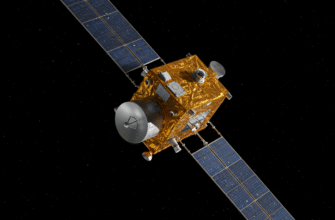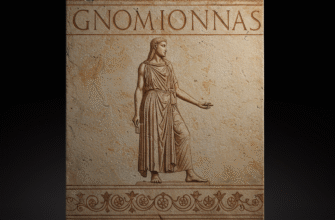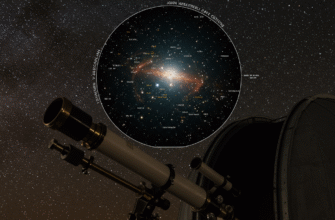The long and brutal Peloponnesian War, stretching from 431 to 404 BC, was more than just a clash of hoplites and triremes; it was a crucible that tested the very fabric of Hellenic society. And as with many ancient conflicts, the heavens themselves were often perceived as active participants, or at least, potent commentators. For us, peering back through millennia, the most insightful guide to these celestial anxieties is Thucydides, the Athenian historian whose account of the war remains a cornerstone of historical writing. While celebrated for his largely rational and secular approach, his narrative doesn’t entirely shy away from the strange lights and shadows that played across the skies, especially when they profoundly influenced human actions.
Thucydides: A Skeptic in an Age of Signs?
It’s crucial to understand that Thucydides was an outlier for his time. The ancient Greek world was steeped in belief in divine intervention, oracles, and omens. Gods were thought to communicate their pleasure or displeasure through a variety of signs, and celestial phenomena – eclipses, comets, meteor showers – were particularly potent. Disregarding such portents could be seen as hubris, inviting disaster. Thucydides, however, sought to explain events through human decisions, political ambitions, strategic errors, and the inherent nature of power. He famously dismissed oracles that didn’t align with observable causes, preferring to analyze the tangible factors driving the conflict.
Yet, he was also a meticulous chronicler. If an omen, or the belief in an omen, had a demonstrable impact on the course of events, he recorded it. His purpose wasn’t necessarily to validate the divine origin of the sign, but to document its effect on human psychology and decision-making. This nuanced approach makes his treatment of celestial omens particularly fascinating. He isn’t debunking them with the smugness of a modern scientist; rather, he’s observing their power within the cultural context of his era.
The First Stirrings: Early War Eclipses
Early in the war, Thucydides notes significant celestial events. For instance, in the first year of the conflict (431 BC), he records a solar eclipse: “During the same summer, on the first day of the lunar month (when this alone, it seems, is possible) the sun was eclipsed after midday, and became full again after it had assumed a crescent form and some of the stars had shone out.” (Book 2, Chapter 28). He even adds the parenthetical observation about the lunar month, showing an awareness of the astronomical conditions for such an event. While he doesn’t directly link this eclipse to specific military hesitations or public panic in this passage, its inclusion suggests its significance as an unusual occurrence during a momentous period.
Another solar eclipse is mentioned in the eighth year of the war (424 BC), although with less detail. These mentions, while perhaps not as dramatically consequential as later events, contribute to the atmosphere of a world where nature’s unusual displays were keenly observed and often interpreted as bearing messages.
The Sicilian Expedition: A Fateful Lunar Omen
The most famous and tragic instance of a celestial omen influencing the Peloponnesian War, as detailed by Thucydides, occurred during the disastrous Athenian Sicilian Expedition. By 413 BC, the Athenian forces in Sicily, under the command of Nicias and Demosthenes, were in a dire situation. They had failed to capture Syracuse, suffered significant losses, and their position was becoming untenable. A decision was made to withdraw.
Thucydides describes the scene vividly (Book 7, Chapter 50). Just as the Athenians were about to make their covert escape by sea under the cover of night, a lunar eclipse occurred. For Nicias, a man described by Thucydides as “somewhat given to divination and the like,” this was an unambiguous and terrifying sign. He refused to proceed with the withdrawal until they had waited “thrice nine days,” as prescribed by his soothsayers. This delay proved catastrophic.
Thucydides highlights Nicias’ deep-seated religiosity and reliance on diviners when faced with the lunar eclipse. This adherence to superstitious interpretation, rather than pragmatic military necessity, led directly to a fatal delay. The historian doesn’t mock Nicias’ piety but lays bare the devastating consequences of allowing such beliefs to override rational strategic thinking in a critical moment. This episode serves as a stark illustration of the real-world impact of omen-reading in ancient warfare.
During those crucial twenty-seven days of waiting, the Syracusans, emboldened and aware of the Athenians’ plight, regrouped and strengthened their blockade of the Great Harbour. They launched fresh attacks, further demoralizing the already weakened Athenians. When the Athenians finally attempted their breakout, they were decisively defeated in a massive naval battle within the harbour. Their fleet was shattered.
The subsequent attempt to retreat by land was even more horrific. Harried by Syracusan forces, starving, and desperate, the once-mighty Athenian army disintegrated. Thousands were killed or captured, with the survivors condemned to a grim fate in the stone quarries of Syracuse. Nicias himself was captured and executed.
Thucydides’ account of the eclipse and its aftermath is a masterclass in historical tragedy. He doesn’t need to explicitly state that the eclipse *caused* the disaster in a supernatural sense. Instead, he shows how human interpretation of the eclipse, specifically Nicias’ superstitious fear, led to a series of decisions that sealed the fate of the Athenian expedition. The moon didn’t destroy the Athenians; Nicias’ reaction to its shadow did. For Thucydides, the omen was a catalyst for human folly, a trigger for a pre-existing vulnerability in leadership.
Other Phenomena: Earthquakes and General Anxiety
While eclipses are the most visually striking celestial omens, Thucydides also records numerous earthquakes throughout the war. For instance, in 426 BC, he describes a period of intense seismic activity around Greece, including at Orobiae in Euboea where the sea receded and then rushed back as a great wave, causing destruction (Book 3, Chapter 89). The Greeks often associated earthquakes with the displeasure of Poseidon, the earth-shaker. While not “celestial” in the same way as an eclipse, these powerful natural events contributed to the general sense of unease and the feeling that the natural order was being disturbed by the protracted and brutal conflict.
These terrestrial upheavals, combined with celestial signs, would have undoubtedly fueled public anxiety and the pronouncements of soothsayers. In a society where the gods were believed to be intimately involved in human affairs, any unusual natural event could be scrutinized for hidden meaning, potentially influencing public opinion and even policy, despite the more rational leanings of figures like Pericles or Thucydides himself.
The Impact of Belief
Thucydides’ genius lies in his understanding that belief itself is a historical force. Whether or not an eclipse “meant” anything divinely, the fact that people believed it did had tangible consequences. Armies might delay marches, commanders might lose their nerve, and public morale could plummet or soar based on the interpretation of a comet or an unusual alignment of planets.
The Spartans, generally considered more pious and traditional than the often-innovative Athenians, were also susceptible to omens. Their decisions to march or postpone campaigns were frequently influenced by unfavorable sacrifices, earthquakes, or other perceived signs from the gods. Thucydides notes instances where Spartan advances were halted due to such portents.
Therefore, when Thucydides includes these accounts, he is providing a fuller picture of the war – one that encompasses not just military strategy and political maneuvering, but also the deeply ingrained cultural and religious beliefs that shaped the actions and reactions of its participants. He demonstrates how, in moments of high tension and uncertainty, the human mind often seeks patterns and explanations beyond the immediately obvious, turning to the heavens for guidance or warning.
A Legacy of Rational Observation
In conclusion, Thucydides’ treatment of celestial omens during the Peloponnesian War is a testament to his remarkable, if not always complete, detachment from the prevailing superstitions of his age. He did not ignore these events, particularly when, like the lunar eclipse before the Sicilian withdrawal, they had a devastatingly direct impact on military operations and the war’s outcome. However, his focus remained steadfastly on human agency and the consequences of human belief and action.
By recording these phenomena and their perceived significance, Thucydides offers us invaluable insight into the ancient Greek mindset. He shows how the awe-inspiring and unpredictable nature of the cosmos could intersect with the brutal realities of war, often with tragic results. His account reminds us that even in conflicts driven by earthly ambitions and power struggles, the silent, distant heavens could cast long, influential shadows over the affairs of mortals, not through direct intervention, but through the potent medium of human interpretation and fear.









